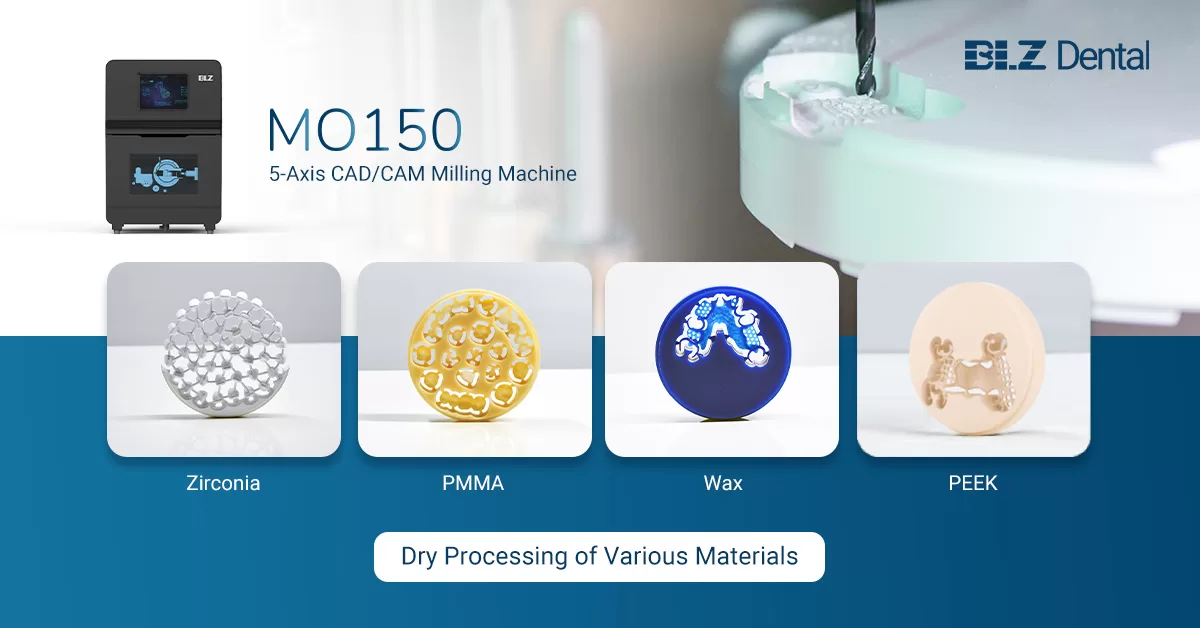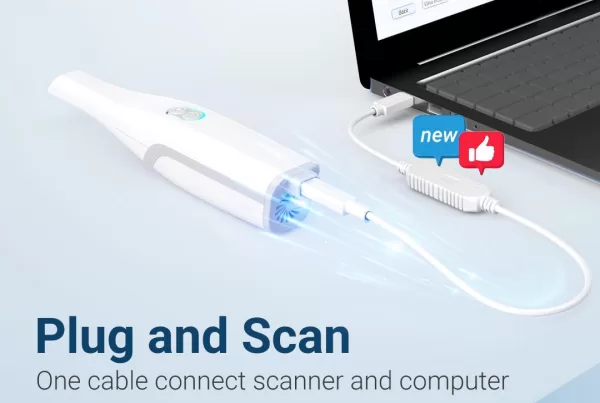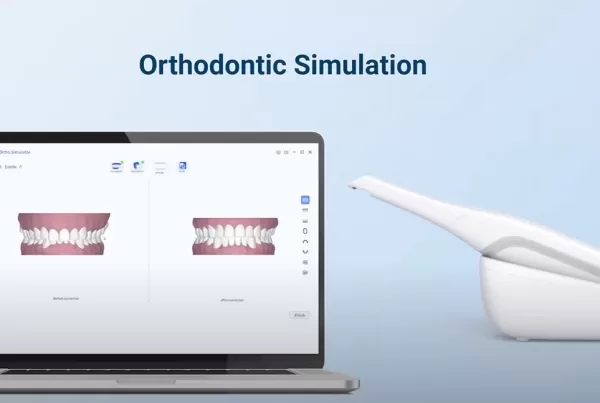With the continuous development of dentistry technology, dental production has also developed from traditional manual manufacturing into digital CNC milling machine processing. Dental milling machine is a professional cutting tool that uses CAD/CAM system to automatically make various types of dentures in the field of oral restorations and implanting. As an essential part of dentistry digitalization workflow, It can greatly improve the dentist’s work efficiency, while also being able to produce more accurate and high-quality dentures.
The machine will automatically processes milling materials such as zirconia, ceramic, was, PMMA and metal to produce crown, bridge, inlay, onlay, veneer, full denture, framework, and implant abutment etc.
Types of Dental Milling Machines
Different dental milling machines can mill different materials. The type of material being milled determines which milling type it should be. According to its supported milling materials and milling method, dental CAD CAM milling machine can be divided into two types, the dry milling and wet milling.
Dry Milling
This method can process mainly soft materials including zirconia, resin, was, and PMMA to develop prosthetics and dental restorations, enabling fine modeling and processing. Dry milling also called dry grinding or dry ball milling that uses pressurized air and a vacuum to remove material particles. As for cutting hard materials, dry processing method are not often used due to breakage and long machine time. Dry milling method generally used to make veneer, implant bar, inlay, onlay, denture framework, and screw-retained bridge.
Wet Milling
Be different from dry milling of soft materials, the wet milling is a method mainly applied to process hard materials such as metals, ceramics, and resins. It is a milling method in which water or cool liquid is applied during processing to suppress frictional heat while polishing.
Wet milling is necessary for producing a less grain-filled and more accurate restoration, especially for the implant abutment and full crown porcelain teeth.
Conclusion
There are many types of mills in the market for both wet and dry milling, and the selection process can be daunting, but with the right equipment to meet your industrial milling needs, you can cost-effectively create uniformly fine particles with little to no contamination. When choosing a mill to fit your business needs, it’s important to find the equipment that maximizes efficiency and performance, and you need to know how the equipment will perform for your product. There are many factors to consider, and material loss can be a big one as it’s part of your overall manufacturing costs. The lower your costs, the better your bottom line looks.
Dry Milling Machine Recommendation

Most dental milling machines in the market are 5-axis. If you are looking for a dry milling machine with great power and excellent precision, we’d like to introduce BLZ Dental MO150. It features 10 tools automatic changing system, 1800 watts of the spindle, and max 60,000 rpm/min rotation speed to provide great efficiency for your laboratory digital workflow.

